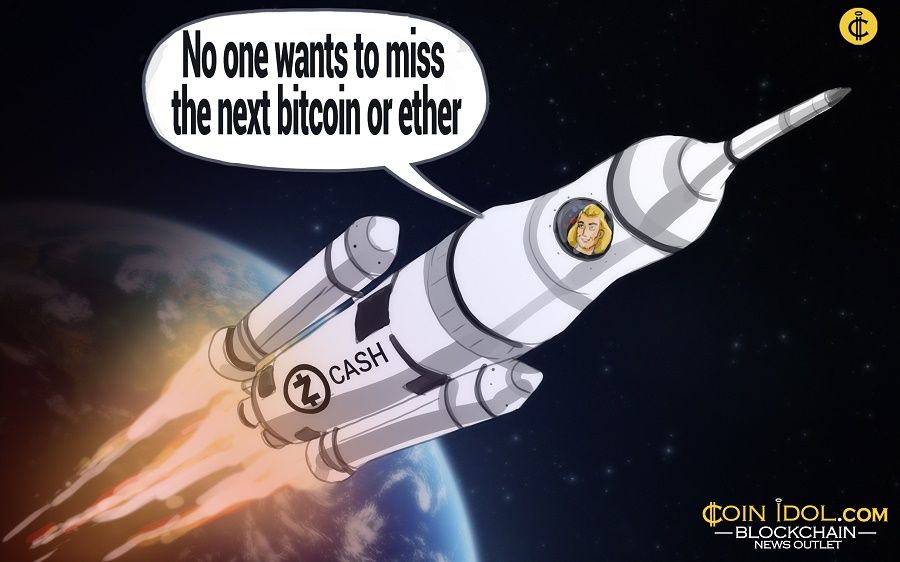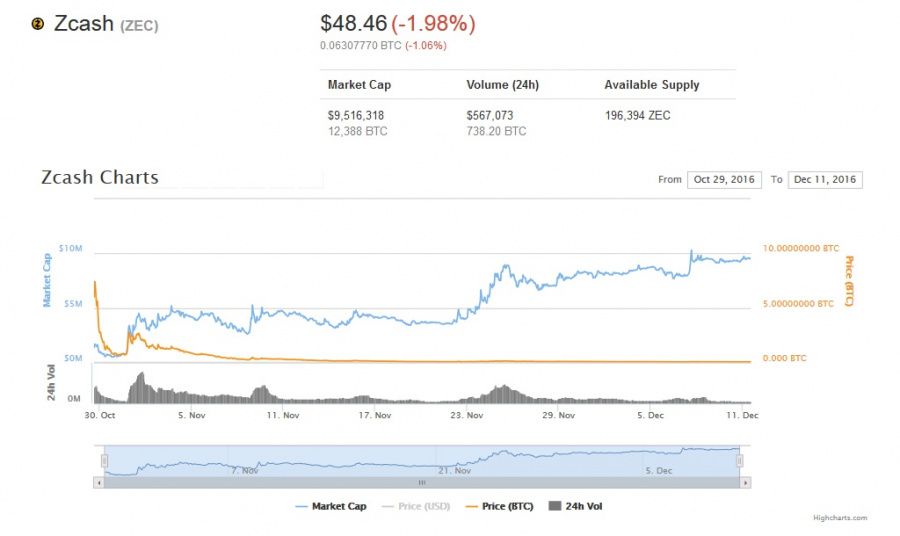These 3 Factors Drive the Zcash Hype
Updated: Oct 29, 2017 at 07:13

It has been no mean feat for Zcash to generate the kind of enthusiasm it has, much of it before it even launched.
On October 27, a day before the official launch, Arthur Hayes, a market analyst and CEO at the trading platform BitMEX, speaking to CoinDesk, described the enthusiasm for Zcash as “deafening.” He said:
"No one wants to miss the next bitcoin or ether. Everyone is trying to get their hands on ZEC."
More than one new cryptocurrency, on average, joins the cryptocurrency market every day. Coinmarketcap tracks the market capitalizations and prices of cryptocurrencies. Each month, the website adds 50 new coins to its list and drops about the same number.
Immediately after the Zcash launch, the coin traded at over $1,000, partly explained by the fact that no coins were pre-mined. The trading began at zero coins, with gradually increasing availability. The price has since crossed the $100 mark and value has gone down as more coins join the market through a mining process modeled on that of bitcoin.

Miners of the altcoin are earning 12.5 ZEC from each block they confirm, which happens every 2.5 minutes. As with bitcoin, the reward halves every four years.
Zcash’s architecture borrows heavily from bitcoin, but some, like Jonathan Toomim, a mining firm operator, predict it will outperform the number one cryptocurrency. He said:
"Bitcoin had four main value propositions – anonymous electronic cash; cheap and scalable transfer of wealth; programmable money; [and] absolute scarcity as a store of wealth. If we look at bitcoin's tech, we see that Zcash does [anonymous electronic cash] and probably [cheap and scalable transfer of wealth] better than bitcoin."
What drives the hype behind Zcash?
The following three factors make Zcash not only attractive to investors and miners, but also a frequent subject of discussion on many blockchain forums:
1. Privacy through zero-knowledge proofs
Zcash offers a strong technical proposition. It runs on the Zerocoin protocol that uses zero-knowledge proof of work. This is a consensus-forming mechanism by which miners confirm transactions on the blockchain without needing access to details about senders and receivers.
Zero-knowledge proof of work affords privacy to holders of the coins. It also keeps the coins fungible. Their past transaction history has no influence on their acceptability for payment.
The technology was first explained in a May 2014 whitepaper by Eli Ben-Sasson, a computer science professor at the Israel Institute of Technology, with input from six other cryptography and computer experts. The whitepaper reads:
“Zerocoin does not rely on digital signatures to validate coins, nor does it require a central bank to prevent double spending. Instead, Zerocoin authenticates coins by proving, in zero-knowledge, that they belong to a public list of valid coins (which can be maintained on the block chain).”
The authors of the paper originally intended the bitcoin community to embrace the protocol and use it to improve bitcoin’s anonymity. The majority of core developers ignored it.
2. Support from established entities
Zcash has support from several established and well-connected organizations within the bitcoin community, which has given it a lot of credibility.
In January of this year, Zcash raised $1 million from Digital Currency Group (DCG), Fenbushi Capital, and Pantera Capital. The benefit from this investment has gone beyond financial. For instance, CoinDesk, a subsidiary of DCG, has used its influence in the cryptocurrency space to drive hype by publishing articles about the new coin.
Quite a few articles have ended with the disclosure:
“CoinDesk is a subsidiary of Digital Currency Group, which has an ownership stake in Zcash.”
3. A highly skilled team
The project boasts support from some of the best minds in cryptography. Zooko Wilcox, the founder and CEO of the project, has more than 20 years of experience in decentralized systems and cryptography. He contributed to the building of DigiCash. Satoshi Nakamoto even cited his work.
Aside from Wilcox, Zcash is privileged to have other great minds working for it, including Ben-Sasson. Most who contributed to the writing and publishing of the Zerocoin whitepaper have also taken part in the Zcash project.
These include Alessandro Chiesa, a faculty member in computer science at UC Berkeley; Christina Garman, a cryptography and computer science Ph.D. student at Johns Hopkins University; and Matthew Green, an assistant professor at Johns Hopkins Information Security Institute.
The Zcash team has also convinced several industry heavyweights to serve as advisors, including Gavin Andresen from the Bitcoin Foundation and Etheruem’s Vitalik Buterin.

About the Author
Rupert Hackett is the general manager of Bitcoin.com.au and BuyaBitcoin.com.au. Rupert specializes in the digital currency and digital payment space and holds the world's first Master's degree in digital currencies. He writes for multiple bitcoin and tech websites and is an acting Board Director for the Australian Digital Currency Commerce Association (ADCCA)
Price
News
Coin expert
News
Price

(0 comments)